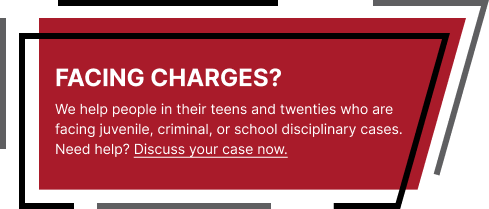

Sexting or sending nude images (or partially nude images) of yourself or other people can be a crime. If the images are of a person who is underage, even if that person is you, it can result in serious criminal charges. In some instances, it can even be a crime when the image is of someone who is not underage, if the person does not want to receive the images or is underage themselves. It could be a picture that you took of yourself or it could be a picture that you received from someone else – either way, the crime can result in some very serious penalties.
Many young people who end up in serious trouble due to sexting were sure they wouldn’t get in trouble. Most cite the same reason for their belief in invincibility: they “knew” the person who took the image (or sent the image) would get in just as much trouble if the authorities got involved. This led them to assume that they couldn’t get in trouble because they wouldn’t get turned in – there wouldn’t be anyone to press charges. This line of thinking is not logical when you are aware of the law that applies to this type of crime.
The prosecutor can decide who they would like to prosecute. Considering this, the only safe way to approach sexting is to NOT send, NOT take, and NOT participate. Just stop. If you are the unwilling recipient of a sext, tell the person who sent the image not to send them to you and delete anything that you do receive.
If you don’t understand why the law is so tough on sexting, consider the potential repercussions. In almost every instance, the nude/partially nude photo that is “sent” does not stop with the intended recipient. The images get passed around. As they do the reach of the photo grows exponentially as does the negative effect for those involved. The effects are often damaging and always irreversible.
Ghanouni Teen & Young Adult Defense Firm 691 John Wesley Dobbs Ave NE unit 225, Atlanta, GA 30312
Ghanouni Teen & Young Adult Defense Firm 2765 S Main St Suite C-2, Kennesaw, GA 30144
Ghanouni Teen & Young Adult Defense Firm 3826 Highlands Parkway SE, Smyrna, GA 30082
Ghanouni Teen & Young Adult Defense Firm 3227 S. Cherokee Lane, Suite 1360, Woodstock, GA 30188